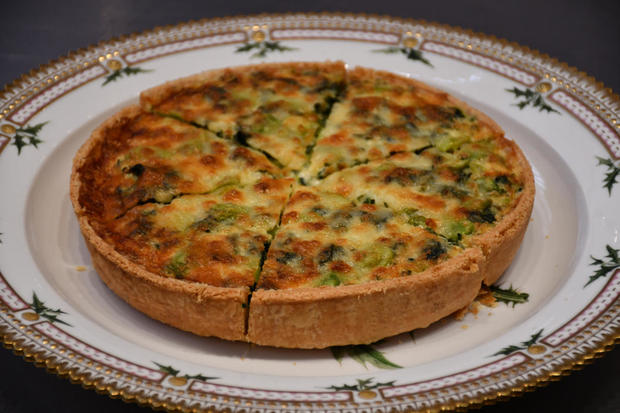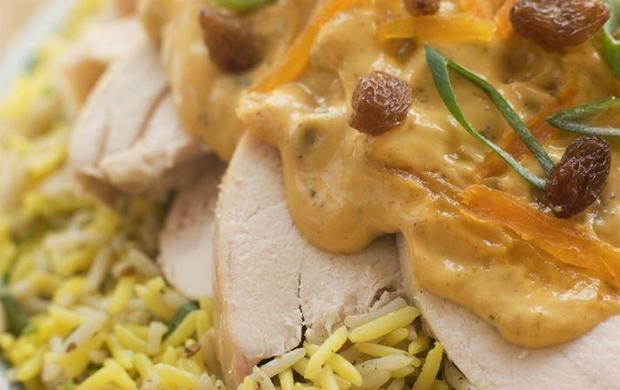London — Buckingham Palace dropped a juicy bit of coronation news this week, and it has nothing to do with who’s attending the ancient ceremony for King Charles III or which of the Crown Jewels may have been looted from the former British colonies. The official dish of the coronation has been announced: It is Coronation Quiche.
Let’s dig in.
The dish:
Even the palace’s use of the word “quiche” in the official recipe made some culinary commenters balk. Few saw much French influence on the new king’s trademark dish of cheddar, eggs, spinach and a few other choice ingredients encased in a buttery pastry crust.
Royals.uk
While French chef Manon Lagrève praised the selection as a boost for Franco-British relations, it turns out that quiche, much like Britain’s royal family, is originally from Germany.
On a more personal note, Darren McGrady, former chef to the royal family, found the choice entirely in keeping with the king’s tastes, tweeting that “The King loves anything with eggs and cheese.”
King Charles III’s coronation: What to know for the centuries-old ceremony
The monarch and his wife, Queen Consort Camilla, are said to have chosen the dish personally to mark the occasion of their crowning. It was suggested by the royals as a feature dish for the “Coronation Big Lunches” that are being organized at the community level across Britain to mark the occasion.
Quiche controversy:
There’s been significant discussion about the optics of holding a taxpayer-funded coronation ceremony, brimming with jewels and inherited wealth, as millions of non-royal Britons struggle through a dire cost of living crisis and join labor picket lines to demand fair pay.
So, the palace may have been wise to offer up a recipe for coronation quiche that calls for relatively cheap and common ingredients. But that ingredient list — and one ingredient in particular — has not gone down particularly well.
It’s unclear what authority might actually rule on whether beans belong in a quiche, but the coronation quiche recipe calls for broad beans (fava beans, to Americans) or soybeans to be included in the filling. The addition was blasted by some Twitter users as “disgusting,” and “nonsense” on the more vitriolic end of the spectrum, and as “a weird choice” by another who chose less harsh words for the lunch fare.
The history:
Coronation quiche isn’t the first official royal coronation dish to hit the British isles, and its predecessor remains a common feature in grocery store aisles and café shelves across the U.K. to this day.
In 1953, the famed Le Cordon Bleu cooking school developed a recipe of cold chicken in a mild curry cream sauce to be served to guests attending Queen Elizabeth II’s Coronation Luncheon.
Coronation Chicken has retained steadfast popularity in the U.K., even weathering the controversial recent addition of raisins. It can be found in restaurants as a salad served on lettuce or rice, or even stuffed into baguettes and sold as a lunch offering at cheap sandwich shops.
Getty/iStockphoto
Bean-bashing and raisin debates aside, food journalist Felicity Cloake said the quiche recipe — which she described as “more like spinach pie” — was less original than its predecessor, “but it’s also likely to be less divisive, which is exactly what the country needs right now.”
Perhaps that will be its legacy — a non-divisive, if mildly controversial, quiche-like pie to united a divided Britain. If you can buy it in a London sandwich shop between two pieces of bread when Prince William is crowned at some indeterminable date in the future, the coronation quiche will be vindicated.

